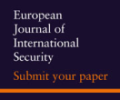European Journal of International Security, Issue 2:2 (forthcoming).
By Andrew Judge (University of Glasgow) and Tomas Maltby (King’s College London)
EU energy policy over the past decade has been characterised by two key developments – liberalisation and ‘securitisation’. The Commission has sought to liberalise and integrate electricity and gas markets as part of its aim of developing a common energy policy across the Member States. Partly in order to legitimise such moves, the Commission has regularly raised concerns about the security of energy supplies, particularly gas. A discourse of energy insecurity has formed around temporary disruptions to gas imports, the enlargement of the EU to Member States highly dependent on external supplies, and the deterioration of relations between the EU and Russia. This has led many observers to argue that EU energy policy has become increasingly ‘securitised’.
The relationship between energy securitisation and the further integration of EU energy policies is not as simple and deterministic as this suggests however. Although security concerns serve as a key rationale for further integration, they can also serve as a rationale for Member States to resist any transfer or sharing of competences. ‘Securitisation’ pulls in two different directions, and it is this paradox that we examine in this article. We argue that intersubjective agreement about whether gas supplies are security concerns is insufficient for justifying greater levels of integration in energy policy, unless there is parallel agreement among the Member States about what kind of security concerns they represent. We distinguish between two logics of security – securitisation and riskification – and use these as conceptual tools for examining the discourses and policy measures adopted by the UK and Polish governments.
In the case of Poland, successive governments have repeatedly linked gas supplies with national security, and claimed that the potential for its main supplier (Russia) to use energy as a ‘weapon’ to exploit Polish dependence on gas imports represents an existential threat. The Polish government has sought to maintain a strong state role in ensuring the security of supplies. This role has extended to the state taking a lead through continuing control of gas imports and distribution, and efforts to diversify gas supplies, promote shale gas exploration and expand pipeline interconnections with neighbouring gas markets. A construction of energy threats, dependence and repeated claims of a link between energy policy and national (in)security suggests that gas supplies have been securitised in Poland.
In the case of the UK, by contrast, the security claims of successive governments have focused on the UK’s potential vulnerability to risks emanating from its growing exposure to European and international gas markets. Such claims have not been based around a discourse of ‘existential threats’ to survival, but instead have been typified by the language of manageable risks and vulnerabilities. It is in this discursive context that the government has sought to carve out a more interventionist role for itself – providing strategic direction to market participants in order to build the resilience of the market – but without seeking to disrupt the normal functioning of the UK’s liberal market. This extension of state influence within a market framework reflects a process of riskification rather than securitisation.
Although gas supplies have been elevated on the security agendas of both states, the specific logic of insecurity that underpins these constructions differs substantially. We argue that one of the main reasons for this is that the UK and Poland have distinct modes of energy governance which condition the kinds of security construction that can emerge. The securitisation of gas supplies was possible in Poland because prior to the emergence of this discourse the gas sector was ‘state-led’ with a major role for the Polish government – a role that has been strengthened through a discourse of existential threats. Such developments were constrained in the UK by the ‘market-led’ gas sector in which the government had a minimal role. Although this role was expanded as a result of security concerns it was confined to setting objectives and monitoring risks – in other words, riskification.
If we accept that the UK and Poland are exemplars of the spectrum of energy governance modes among the Member States, and that this has played a role in constraining what logics of insecurity have come to dominate, then there are significant challenges to further integration as long as agreement that gas supplies as a security concern endures. For proponents of further integration this is concerning, since claims about gas insecurity have long been central to the Commission’s attempts to develop a common EU energy policy and it is difficult to see what alternative discursive rationale could persuade Member States to transfer or share competences in this policy area.




No comments yet.